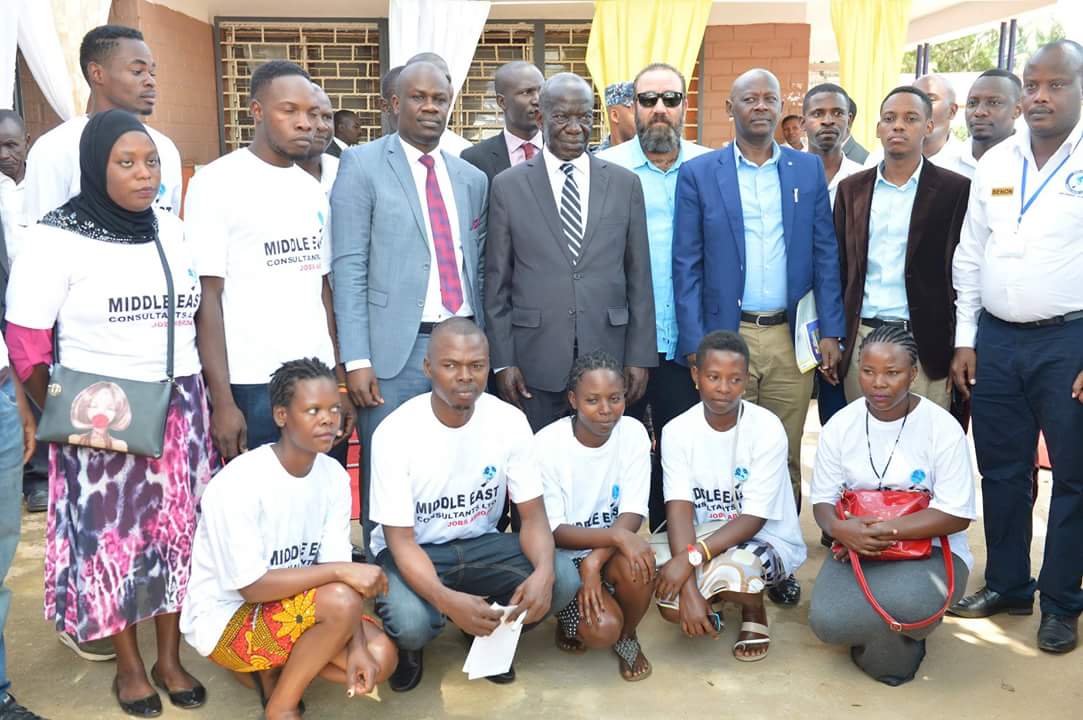KAMPALA: One of Uganda’s labour export firms, Middle East Consultants Limited has been in the news for the bad reasons, accused of employing top officials who extort money from some of the desperate Ugandans with promises that they are to secure them good paying jobs in the Middle East but this ends up as lies, which demoralizes the job seekers.
For instance, it was reported in the media that the managers of the company have accepted their liability and refunded the money or have made commitment to pay it back after failing to find jobs for clients turned victims by the company which was among the first companies to export labour out of Uganda. Those tracking the company’s activities say that conning of clients/victims still continues at the company much as it exports some labour.
But despite cheating clients, it is reported that more and more desperate young people are flocking the company in the hope of securing a job and that some of the money collected from the fresh recruits is used to compensate the old ones who demand their money after failing to get the jobs. Analysts say this could be the reason why the company is advertising all the time. Their aim is not to get jobs for Ugandans but to cheat them of the hard-earned money.
For instance Sunday Monitor reports the case of Adolf Kyaligonza who on January 27, 2018, Kyaligonza registered with the Middle East Consultants company for a possible job abroad.
He was consequently summoned for interviews for a job in Qatar, which the company said it had secured.
On the appointed date, he was among the more than 80 people who sat for an interview. They were warned beforehand that they needed to have money ready before doing the interviews. They had a window of only 24h hours.
Mr Kyaligonza secured a loan from a local bank and waited. On the appointed day, after passing the interview, he proceeded to Equity Bank and paid US$1500 (about Shs5.5m) on the company’s A/C 100220069 5532.
According to Sunday Monitor, Middle East Consultants officials reportedly told him his visa would be ready in five days.
On the same day, On September 4, 2018, the company asked Kyaligonza to pay more money through one of its workers, a one Sarah Ninsiima, to process his travel.
He paid to Ninsiima Shs500, 000 for verification of his Advanced Certificate of Education, Shs300, 000 for Interpol (Certificate of Good Conduct), Shs100, 000 for the “Yellow Book” [Yellow Fever card].
The monies above were said to be way above the official government fees.
Between October and December, 2018, Kyalionza regularly travelled from Fort Portal in Kabarole District to Muyenga in Kampala to check on the progress of his travel.
Each time, he was promised, including undertaking fresh interviews for other jobs in Abu Dhabi.
By December 15, Kyaligonza had had enough of the unfulfilled promises and started demanding a refund of his money. The general manager, Benon Kunywana, sent Kyaligonza to the company’s accounts office where he was given refund forms. He was informed that he could only get a refund after 35 to 45 days.
Meanwhile, Kyaligonza says he had to go into hiding because the bank where he had borrowed money was after him.
The journalists intervened to save Kyaligonza
The journalists say they presented Kyaligonza’s case to Middle East Consultants managing director Gordon Mugyenyi on January 25 who referred them to a one a one Kunywana to deal with the issue.
“We informed him that we were in the process of publishing the story and that we needed his response to the allegations. He asked us not to publish the story, saying Kyaligonza’s money would be refunded. We decided to hold the story until Kyaligonza, who was in hiding from his debtors, was paid his money,” the story reads.
After pressure mounted, THE Sunday Monitor reports, Kyaligonza’s was eventually refunded his US$1500 and the Shs900, 000 that he had paid to the company.
But all the money he spent in pursuing his refund was not refunded and he has had to contend with interest on the loan he took.
This how Middle East Consultants operate despite running several advertisements in the main stream media as well as social media. Government should just deregister such companies, victims talked to said.


